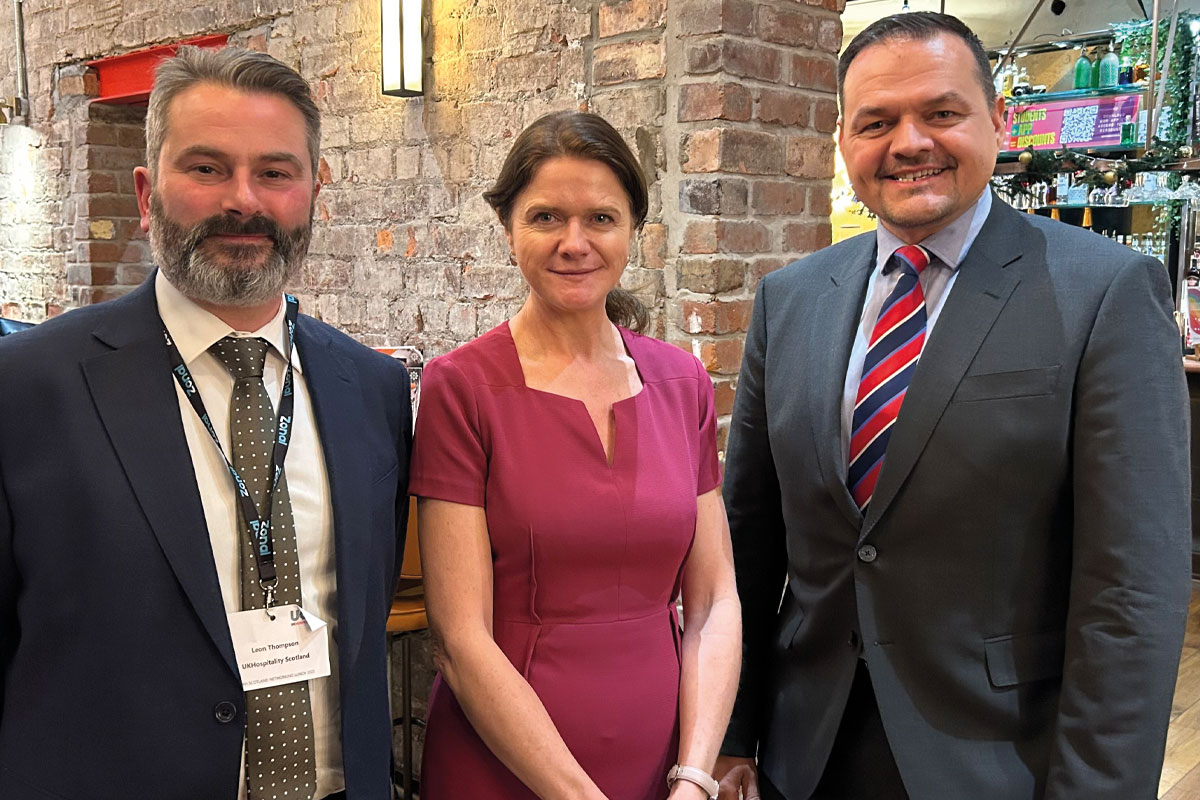 Festive trade delivered average sales growth of 8.8% across the hospitality sector at the tail end of 2023 – but welcome though that was, it was still just ‘the bare minimum’ that venues needed as cost pressures continued to mount.
Festive trade delivered average sales growth of 8.8% across the hospitality sector at the tail end of 2023 – but welcome though that was, it was still just ‘the bare minimum’ that venues needed as cost pressures continued to mount.
Sales data from the CGA RSM Hospitality Business Tracker found that pubs performed most strongly, with sales growth of 9.6% compared to 2022, followed by restaurants at 8.3% and bars at 5.6%.
While welcoming this long-overdue uptick, UKHospitality warned that the improved sales performance was unlikely to be enough to balance ongoing operating cost pressure, particularly as businesses now have to weather the start-of-year slump.
UKH chief executive Kate Nicholls said: “A positive Christmas was essential for hospitality businesses, who desperately needed strong trading figures after four years of disruption during the festive period.

“I’m pleased that pubs, restaurants and bars all saw sales growth of at least 5% compared to 2022, but in reality this was the bare minimum they needed to keep up with extremely challenging trading conditions.
“As we’re now heading through the quieter winter months, these results will help many to keep going but I would urge the public to support their local venues,” said Nicholls. “If we don’t use these valuable community assets, we will lose them for good.”
UKHospitality Scotland executive director Leon Thompson commented: “While Christmas trading appears to have been buoyant for some pubs, bars and restaurants, this masks the financial reality that businesses across Scotland are facing. Many will have been relieved to see their venues busy over the festive period but, frankly, that boosted revenue will have barely touched the sides of costs that are racking up in every area.
“Not only does hospitality in Scotland have to deal with the cost of doing business crisis, but they have to contend with the Scottish Government putting them at a competitive disadvantage to the rest of the UK,” added Thompson.
“We urgently need to see a business rates relief scheme implemented, like in England and Wales, and in the long-term, we’re continuing to call for a reduced rate of VAT for hospitality, leisure and tourism, to the benefit of businesses, consumers and the Scottish economy.”




















